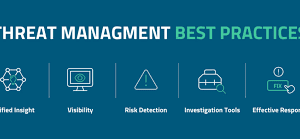Are you a pro at juggling multiple tasks, solving problems on the fly, and keeping everyone on track? If so, a career in project management might be just the ticket for you! From tech startups to healthcare organizations, project managers are in high demand across a wide range of industries. In this blog post, we’ll explore some of the top industries where your skills as a project manager can truly shine. So buckle up and get ready to discover exciting career opportunities that could be right up your alley!
Introduction to Project Management and its growing demand in various industries
Project management is a discipline that involves planning, organizing, and executing projects within a defined scope, schedule, and budget. It aims to achieve specific goals and objectives by utilizing resources efficiently and effectively. Project management has become an integral part of businesses across various industries due to its ability to streamline processes, increase efficiency, and ensure successful project delivery.
In recent years, there has been a significant growth in the demand for project management professionals across different sectors. This surge can be attributed to several factors such as increasing globalization, rapid technological advancements, complex business environments, and the need for organizations to stay competitive.
Globalization has opened up new markets for businesses around the world. With this comes the challenge of managing projects that involve cross-cultural teams working on different time zones. As a result, the role of project managers becomes even more critical as they need to have strong communication skills and cross-cultural awareness to lead diverse teams successfully.
Moreover, with technological advancements shaping our workplaces at an unprecedented pace, organizations are turning towards project management methodologies such as Agile or Scrum to adapt quickly to changes in their operating environment. This has led to an increased demand for project managers who are well versed in these methodologies.
The constantly evolving business landscape also means that organizations face complex challenges in achieving their goals. Hence, they require highly skilled project managers who can navigate through uncertainties and mitigate risks effectively while maintaining productivity.
Additionally, with cut-throat competition among companies striving for success in their respective fields of operation, implementing efficient project management practices has become crucial. Organizations now realize the importance of completing projects within stipulated timeframes without compromising quality or cost-effectiveness. This has resulted in an increased demand for competent project managers who possess not only technical knowledge but also excellent leadership abilities.
Healthcare industry: The need for effective project management in healthcare facilities
Effective project management plays a crucial role in the success of healthcare facilities. The healthcare industry is constantly evolving with new technologies, regulations, and patient expectations, making it essential for facilities to adapt and continuously improve their processes. Project management skills are crucial in ensuring that these changes are implemented smoothly and efficiently.
One major reason why effective project management is needed in the healthcare industry is due to its complex nature. Healthcare projects often involve numerous teams with different roles and responsibilities, as well as strict timelines and budget constraints. Without proper project management, these projects can quickly become chaotic and result in delays, cost overruns, and compromised quality of care.
Furthermore, there are various stakeholders involved in healthcare facilities such as physicians, nurses, patients, insurance providers, government agencies, equipment suppliers, and more. Each stakeholder has their own goals and expectations for the facility’s projects. A skilled project manager can effectively communicate with all parties involved and ensure that everyone’s needs are met while keeping the project on track.
Moreover, effective project management is critical for maintaining compliance with regulations in the healthcare industry. There are strict standards set by government agencies such as HIPAA (Health Insurance Portability & Accountability Act) that require confidential patient information to be securely managed. Project managers must have a thorough understanding of these regulations to ensure that all aspects of a project comply with them.
In addition to these factors specific to the healthcare industry, project management also helps in improving overall efficiency within facilities. With proper planning and organization techniques implemented by project managers, resources can be allocated effectively throughout the facility resulting in reduced costs and increased productivity.
Another important aspect where effective project management comes into play is risk mitigation. In any industry but particularly in healthcare where patient safety is paramount; identifying potential risks early on allows for timely resolution or contingency plans put into place before they turn into significant problems.
Construction industry: Managing timelines, budgets and resources in construction projects
Timelines are an essential aspect of any construction project as they determine the overall duration of the project. Project managers must develop a detailed schedule that outlines when each task will be completed and assigns responsibility to team members. This timeline should also consider potential delays or setbacks that may occur during the course of the project. By closely monitoring and managing this schedule, a project manager can ensure that all tasks are completed on time, preventing costly delays.
Budget management is another crucial aspect of construction projects. It involves creating a comprehensive budget that covers all expenses related to labor, materials, equipment, and other resources needed for the project. A good project manager is skilled in negotiating prices with vendors and suppliers to ensure cost-effectiveness without compromising quality. They also monitor and track expenses throughout the duration of the project to prevent overspending.
Effective resource management is vital in keeping a construction project within budget and on schedule. This includes managing human resources such as subcontractors and workers by assigning tasks efficiently and ensuring they have access to necessary training or equipment. Managing material resources involves ordering supplies in a timely manner to avoid delays while minimizing waste or excess inventory.
One way to facilitate efficient management of timelines, budgets, and resources is through proper communication channels. A successful leader should maintain open communication with their team at every stage of the project. Regular meetings allow for updates on progress made towards meeting targets while discussing any issues or concerns promptly.
Project managers must also be prepared to handle unexpected challenges that may arise during construction projects quickly. These could include weather conditions affecting outdoor work or unforeseen changes in regulations that may require adjustments to plans or timelines.
Information technology (IT) industry: Role of project management in successful delivery of IT projects
1. Defining Project Goals and Objectives:
One of the primary responsibilities of a project manager in the IT industry is to define clear goals and objectives for each project. With technology advancing at an unprecedented pace, it is essential to have a well-defined roadmap to keep up with changing requirements and expectations. A detailed project plan helps in determining realistic timelines and allocating resources effectively.
2. Resource Management:
Managing resources, both human and technological, is another critical aspect of project management in the IT industry. Efficient allocation of resources ensures that each team member has clearly defined roles and responsibilities, which leads to improved productivity. Additionally, managing technological resources such as hardware, software, or tools also falls within the purview of project management in this industry.
3. Managing Risks:
In any IT project, there are multiple potential risks that can arise during development or implementation. These could include technical glitches, unforeseen changes in requirements or budget constraints. A skilled project manager will proactively identify potential risks and develop mitigation strategies to minimize their impact on the overall success of the project.
4. Communication and Collaboration:
Effective communication is vital for successful delivery of an IT project involving multiple stakeholders like clients, developers, testers or vendors. The role of a project manager comes into play while ensuring all parties involved understand their respective roles and responsibilities through regular communication channels such as status updates or progress reports.
5.Logistical Planning:
With global teams becoming more common in today’s business environment, logistical planning becomes critical for delivering projects within set deadlines. Skilled project managers use various tools like Gantt charts or agile methodologies to ensure continuous coordination among team members and keep the project on track.
Marketing and Advertising industry: Driving successful campaigns through project management strategies
The marketing and advertising industry is one of the biggest and most dynamic industries in the world, constantly evolving to adapt to new technologies and consumer behaviors. In today’s fast-paced market, project management strategies play a crucial role in driving successful campaigns for businesses.
Project management is essential in the marketing and advertising industry because it helps keep projects on track, within budget, and aligned with the initial goals. Without effective project management, campaigns can quickly fall apart due to miscommunication, missed deadlines, or unexpected challenges.
One of the key benefits of project management in this industry is that it enables teams to plan and execute campaigns efficiently. By using project management tools such as Gantt charts and agile methodologies like Scrum, teams can break down a campaign into smaller tasks with clear timelines. This allows for better resource allocation and helps manage deadlines effectively.
Additionally, project management also facilitates collaboration between different departments within a marketing or advertising agency. A well-structured plan with defined roles and responsibilities ensures that everyone is on the same page throughout the duration of a campaign.
Another important aspect where project management excels in this industry is managing budgets. Campaigns often involve various expenses such as media placements, content creation, influencer partnerships, etc., which need to be meticulously tracked and managed to ensure there are no cost overruns. Project managers use budget tracking tools to monitor expenses against estimates regularly to make necessary adjustments if required.
Moreover, successful campaigns require constant monitoring and adaptability based on data analytics. Project managers play an integral role in keeping track of campaign performance metrics such as reach, engagement rates,
and return on investment (ROI). They use these insights to make data-driven decisions about implementing changes or allocating resources accordingly.
Event planning industry: Importance of project management skills in event planning and execution
The event planning industry is a fast-paced and dynamic field that requires a high level of organization, creativity, and attention to detail. With the growing demand for elaborate and impactful events, the need for skilled project managers in this industry has become more significant than ever before.
Project management skills are crucial in event planning and execution as they ensure all aspects of an event are well-coordinated and executed seamlessly. Unlike other industries where project management may only come into play during specific projects, the nature of event planning requires constant project management throughout the entire process – from conception to completion.
One of the main reasons why project management skills are vital in event planning is because events involve numerous moving parts that must work together to create a cohesive experience. From finding suitable venues, managing budgets, coordinating vendors, designing layouts, marketing promotions, and communicating with clients – everything needs to be planned meticulously for an event to be successful.
A skilled project manager possesses strong leadership abilities that allow them to effectively delegate tasks and manage different teams involved in an event. They understand how to identify individual strengths within their team members and assign tasks accordingly. This not only ensures smooth communication among team members but also leads to better overall efficiency.
Effective time management is another critical aspect of project management skills in event planning. As most events have strict deadlines and schedules that cannot be compromised, a talented project manager can prioritize tasks, arrange timelines efficiently, anticipate potential delays or challenges, and mitigate any risks proactively.
Budgeting is also a key area where project management skills shine in the event planning industry. A budget can make or break an event; hence it must be allocated wisely. An experienced project manager knows how to optimize resources while staying within budgetary constraints without compromising quality or customer satisfaction.
Education sector: Empowering students through project
Project-based learning involves students working on real-world projects that require them to apply their knowledge and skills to solve a specific problem or complete a task. These projects could range from creating a business plan to designing a sustainable community garden. Students are given the freedom to choose their own topics, conduct research, make decisions, work in teams, and present their findings or solutions.
This method of learning has been proven to be highly effective in empowering students to take ownership of their education. It allows them to engage actively in their learning process and see the practical application of what they are being taught in class. As a result, they become more motivated and invested in their studies.
One major benefit of project-based learning for students is the development of critical thinking skills. By working on complex problems or tasks, students learn how to analyze information critically, evaluate different perspectives, and come up with creative solutions. This skill is crucial for success not just in academics but also in various career paths.
Furthermore, project-based learning promotes teamwork and collaboration among students. In today’s globalized world where team projects are becoming increasingly common, this skill is essential for future career opportunities. Through project-based learning, students learn how to communicate effectively with their peers, share responsibilities, respect each other’s ideas, and work towards achieving a common goal. These soft skills are highly valued by employers across industries.
Conclusion
With the increasing demand for project management professionals, there are endless opportunities available in various industries. From construction to healthcare, technology to finance, these industries provide a diverse range of projects that require efficient and skilled project managers. As you embark on your career path in project management, explore different industries and find the one that aligns with your interests and skills. The possibilities are endless, so take advantage of this exciting career field and strive towards success!



































